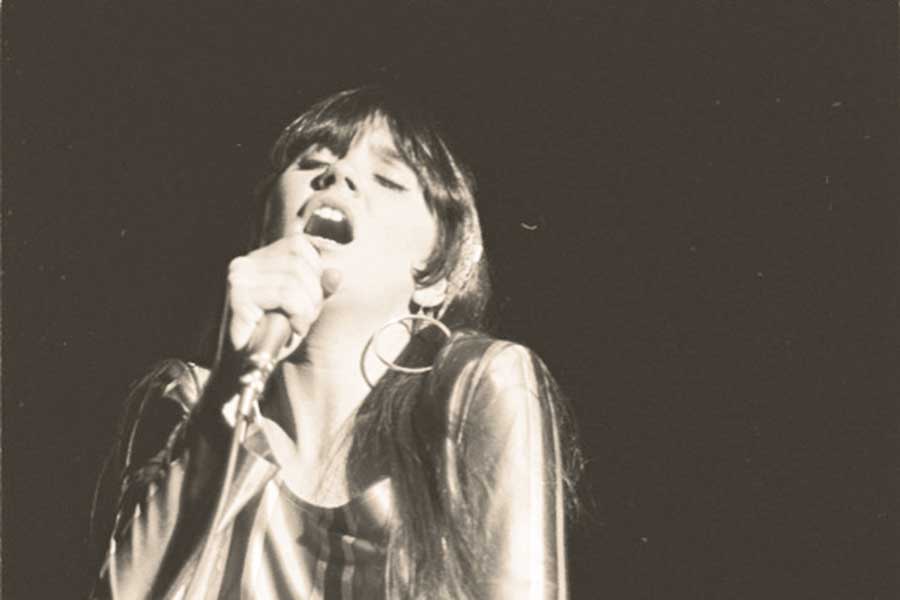During her recording career, Linda Ronstadt’s voice was incredibly powerful; she could deliver goosebumps or tears in equal measure.
“Linda Ronstadt: The Sound of My Voice,” directed by out gay filmmakers Rob Epstein and Jeffrey Friedman opens September 13 at the Landmark Ritz East and recounts the life and career of the singer who retired from performing in 2009 due to Parkinson’s disease.
Ronstadt, as the film shows, was able to sing almost anything — and she did, scoring hit records in the genres of country, folk-rock, rock and roll, standards, operetta and canciones. She harmonized famously with Dolly Parton and Emmylou Harris for two “Trio” albums. She could put out a power ballad (“Blue Bayou”), a country-rock tune (“When Will I Be Loved”) or a rock number, (“You’re No Good”) and they would be monster hits. She was the most successful female singer of the 1970s, selling out arenas only to shift gears and perform on curtained theatre stages.
The film shows what made Ronstadt so remarkable: she heard a song once and knew exactly how to sing it. Unlike the up-and-coming singer-songwriters of the era, Ronstadt did not pen her tunes but covered other musicians’ works, often reviving a once-popular or lesser-known song and making it her own. After hearing Ronstadt’s version of any song, it is impossible to hear the original the same way. And there are enough on-screen performances of her hits — “Heart Like a Wheel” and “Get Closer,” among them — to satisfy wistful fans.
“Linda Ronstadt: The Sound of My Voice” is a comfortable, conventional documentary that features Ronstadt via voiceover and utilizes archival footage, performances, photographs and interviews — Dolly Parton describes Ronstadt’s perfectionism — to show how she started singing and found success.
Growing up in an isolated area in Tucson, Arizona, and in a family that loved music, Ronstadt explains that the radio was her best friend. Her brother Peter was a soloist who taught her vibrato. Her family listened to Gilbert and Sullivan, country music (Hank Williams in particular) and Mexican songs. From an early age, she sang in Spanish — her father was Mexican — and spoke in English. These influences shaped her career as she recorded albums in each musical genre, often against industry executives’ wishes. But whenever they told her “don’t,” or “it will ruin your career,” she did it anyway. David Geffen, the out gay founder of her label, Asylum Records, interviewed in the film, was a strong supporter of her and her career.
Ronstadt, who often performed barefoot on stage, was one of a new breed of women musicians — Bonnie Raitt, Emmylou Harris, and Karla Bonoff included — who escaped being told how to dress or what music to make. Ronstadt was taken when she saw Harris perform, and the two became friends. Moreover, Ronstadt helped Harris recover after her partner Graham Parsons’ death. The film uses camaraderie between women to acknowledge the sexism in the male-dominated music industry. Epstein and Friedman also recount the attitudes of men band members who complained about “working for a chick singer.” This prompts a brief discussion of the difficulties of life on the road and the lure of drugs.
But the documentary never stays downbeat for too long — even when Ronstadt’s personal life is briefly addressed. The singer never married and espouses her attitudes about marriage in a telling clip. She was romantically involved with songwriter J.D. Souther, who recalls an amusing story about asking Ronstadt to make him dinner. In contrast, her relationship with California Governor Jerry Brown is scrutinized in a TV interview that shows Ronstadt’s moxie when she talks about politics and defends performing in South Africa.
“Linda Ronstadt: The Sound of My Voice” briefly touches on her activism. (She was an advocate for LGBTQ rights, but that goes unmentioned). The documentary also raises points about her lack of confidence, as well as her loneliness. While viewers may wish for more details about her personal life, Epstein and Friedman cherry-picked the moments to depict, and there are some great nuggets, such as her offhanded remark about The Doors, her role in helping assemble the Eagles and her determination to record with Aaron Neville after seeing him perform in New Orleans.
The power Ronstadt derives from vulnerability is felt when watching her sing on screen. Her brown eyes look right through the camera. The emotion in her voice rips right through the viewers, in songs like the Eagles’ “Desperado,” or “Lose Again.” This film will delight fans and renew appreciation for the singer who bemoans that her voice “has lost its colors.”
